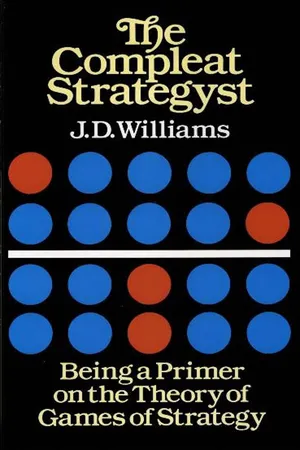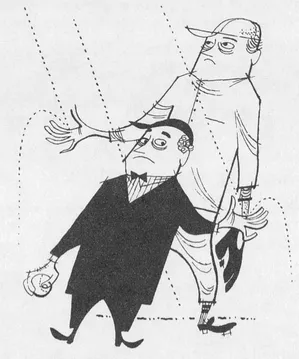NATURE OF THE SUBJECT
It is all too clear at this moment that there are many ways for a book to begin; and most of those in plain sight are transparently bad. We are tantalized by the thought that somewhere among them may lie hidden a few having such noble qualities as these: The readers are informed—perhaps without suspecting it, though in the clearest prose—of what the writer intends to discuss; yet at the same time, it sounds like the Lorelei calling. Whereupon these readers resolve into two groups: The first, a large and happy family really, will stick to the book to the end, even though unimagined adversities impend. Further, this group will always think and speak kindly of it, and will doubtless have at least one copy in every room. The second group is most briefly described by stating that it differs from the first; but the book acts immediately as a soporific on all unpleasant passions, so, as it is sleepily laid aside, the sole lasting impression is that of a good gift suggestion.
If we could devise an opening strategy such as that, it would wonderfully exemplify the theme and aims of the book, for our concern throughout will be with a method for selecting best strategies, even in contexts where the word ‘strategy’ itself may not be in common use.
The contexts of interest to us are those in which people are at cross-purposes: in short, conflict situations. The problem of how to begin this book is recognizably of that type, for certainly you and the writer are at cross-purposes, as our interests are opposed—in a polite way, of course, but definitely opposed. For we hope to cozen you into a very difficult type of intellectual activity, while you, a reasonable person with enough troubles already, may crave only relaxation or satisfaction of curiosity. This conflict of interests is essential in the situations we shall study.
Another element is also essential and it is present here too: Each of us can exert some control over the situation. Many ways will occur to you: for one, you may throw the book at the cat, thus irritating both the writer and the cat, but at some cost in property, perhaps some in self-respect, and undoubtedly some in deteriorated relations with the cat. Or you may skim the hard parts, and so on. There are aspects within the control of the writer, too, such as the choice and treatment of content—but it is not necessary to labor the point. And a further characteristic element appears: Some aspects of the situation are not within the control of either of us; for example, a multitude of events in our pasts and extraneous influences during the writing and reading periods will play important roles. Of course this particular problem, of beginning the book in a really optimum way, has a further characteristic which we shall henceforth shun, namely, it is too hard—else we should have solved it.
The restrictions on the subject matter being so few and mild, it follows that the set of conflict situations we are willing to consider is most notable for its catholicity. There is no objection, in principle, to considering an H-bomb contest between Mars and Earth, or a love affair of the Barrett-Browning type. The contest may be economic in character, or it may be Musical Chairs. Or it may be almost any one of the myriad activities which take place during conventional war. It doesn’t follow that we have a nostrum for strategic ills in all these fields, but there is a possibility that our offering may as a method, perform useful service in any of them.
The method which will be presented is identified by the catch phrase Game Theory or, time permitting, the Theory of Games of Strategy. If this is your first encounter with that unlikely sequence of nouns, the sole reaction is probably: Why? Well, the idea takes its name from the circumstance that the study of games is a useful and usable starting point in the study of strategy. That does not really help, for again we hear: Why? Well, because games contain many of the ingredients common to all conflicts, and they are relatively amenable to description and to study. (Incidentally, having used the word ‘game’ to name the theory, we then call any conflict a game when we are considering it in the light of the theory.)
To illustrate the point, let us run our minds over a Poker game, keeping watch for items which are significant in, say, a military conflict. You and four others are thus studying human nature, under a system of rewards, you hope. We note at once that the players have opposing interests; each wants to win and, because the winnings of one are necessarily the losses of another, their interests are opposed. This provides the basis of conflict. We observe too that some elements of the action, being personal choices, are completely within your control. And the same being true for each player, there are elements which are not within your control; worse, they are controlled by minds having interests inimical to yours. Finally, there are elements of the game that are not, under the rules, within the control of any player, such as the order of the cards in the deck. These elements may be thought of as being controlled by Nature—who has a massively stable personality, a somewhat puckish attitude toward your important affairs, but who bears you no conscious malice. These are all surely familiar aspects of any conflict situation.
Another characteristic is that the state of information—intelligence, in the military sense—is a factor, and, as usual, is an imperfect and hence troublesome factor: We don’t know what the other fellow’s hole card is. There is also the bluff by which you, or the opposition, give false evidence regarding intentions or strength of forces. Other similarities will occur to you; people even get killed, occasionally.
But the analogy should not be pushed too far. You can think of many aspects of warfare which are not reflected in Poker. One tank will sometimes kill two tanks, in a showdown; whereas a pair of Jacks always wins over an Ace-high hand in the showdown. Of course Poker could be modified to make it contain showdown possibilities of this kind, say by ruling that an Ace is superior to any pair, up to Jacks, whenever anybody’s wife phones during the play of a hand. But the fact is that games don’t exhibit all the complexities of warfare and of other real-life conflict situations—which is precisely why they are usable starting points for a study of strategy. In the early stages of developing a theory it just is not possible simultaneously to handle very many interacting factors.
It is probably clear, then, that games do contain some of the basic elements that are present in almost any interesting conflict situation. Does it follow that we can learn useful things by beginning a study with them? Not necessarily. It may be that military, economic, and social situations are just basically too complicated to be approached through game concepts. This possibility gains credence from the fact that the body of Game doctrine now in existence is not even able to cope with full-blown real games; rather, we are restricted at present to very simple real games, and to watered-down versions of complicated ones, such as Poker.
It may be baffling then that someone devotes valuable energy to the study and development of Game Theory—and, moreover, expects you to participate! The reason it is done is in part an act of hope and of faith, stemming from past successes. For the invention of deliberately oversimplified theories is one of the major techniques of science, particularly of the ‘exact’ sciences, which make extensive use of mathematical analysis. If the biophysicist can usefully employ simplified models of the cell and the cosmologist simplified models of the universe, then we can reasonably expect that simplified games may prove to be useful models for more complicated conflicts.
Of course the mortality among such theories is higher than any military organization would tolerate in its activities, and those that are successful are not really immortal; the best that can be expected of one is that it be adequate for certain limited purposes, and for its day.
AN HISTORICAL THEORY
It may be useful to examine one successful scientific abstraction, to see what it is like and for the sake of the hints it may give us. We choose one which is surely an example of heroic oversimplification.
Let us assume that we may, in order to study their motions, replace each of the major bodies of the Solar System by a point; that each point has a mass equal to that of the body it replaces; that each pair of points experiences a mutual attraction; that we may estimate the attractive force by multiplying the mass of one point by the mass of the other, after which we divide that product by the square of the distance between the points; that we may neglect all else; and that it isn’t patently stupid to consider this theory, else we would never get started.
The fact is that this theory, the Theory of Gravitation, has been adequate for predicting the motions of the planets for two and one-half centuries—and this in the face of constant checking by positional astronomers, who, it can fairly be said, carry precision to extremes. The worst strain has come from the orbit of Mercury, which unaccountably drifted from the predicted place by one-fifth of a mil (a foot, at a distance of a mile) per century, thus showing that the theory is rough after all, just as it looks. The improved theory, by Einstein, accounts for this discordance.
LESSONS AND PARALLELS
The elements of the theory stated above of course did not just float into a mind dazed by a blow from an apple. There was much information at hand regarding the actual behavior of the planets, thanks largely to Tycho Brahe, and a wearisome mess it was. Kepler finally grubbed out of it a few rules of thumb; with these, and with a lift from a new mathematical invention (the Calculus), Newton soon afterward hit upon the above abstraction. He had the misfortune to try it immediately on the Moon, which cost him years of happiness with his theory, for the data were seriously in error.
This example contains several lessons for us. One is that theories may be very simple, while the phenomena they model do not appear simple. Anybody who supposes that planetary motions are quite simple has never had the responsibility for predicting them; the ancients had good reason to name them the Wanderers. Another lesson is that a theory can be very general, being applicable to a wide variety of phenomena, without being sterile; the Theory of Gravitation is even more general than stated above, for it applies to all mass particles, not just to the major bodies of the Solar System. Another lesson is that theories often or usually are imperfect, though the one used as an example is embarrassingly good. Another—and this is a very important one—is that the theory covers only one of the interesting factors which may affect the motion of bodies; one, moreover, that is frequently negligible. For example, the gravitational attraction between two airplanes flying a tight formation is equivalent to the weight of a cigarette ash, perhaps a sixteenth of an inch long.
Still another lesson concerns the importance of having some relevant data. In this respect Newton was somewhat better off than we are—we who are trying to do abstraction in such a field as conflict. For most of the data we have on man relate to the individual—his physical and mental composition, health, ability, etc.—and, to a lesser extent, to the gross characteristics of the social group. The interactions between men, as individuals in a group or between groups, have not been studied on anything approaching the scale needed; and these interactions are the stuff which constitutes conflict.
Another lesson, or at least a suggestive note, is the fact that Newton almost simultaneously developed the Theory of Gravitation and a new branch of mathematics—the Calculus; and the theory would have been practically unusable without it. In fact the Calculus has played a dominant role in all physical science for a quarter of a millennium. It is provocative to speculate on whether Game Theory will develop a new mathematical discipline destined for a comparable role in analyzing the interactions of men. It is much too early to conjecture that it will; so far, there has been little that is recognizable as brand new, and much that is recognizable as borrowings from established branches. But it may happen, and perhaps even it must happen if the application of the method is to reach full flower. It is at least interesting that the original development of Game Theory is the work of one of the really great mathematicians and versatile minds of our day—John von Neumann.1
Game Theory is very similar in spirit to the Theory of Gravitation. Both attempt to treat broad classes of events according to abstract models. Neither tries to model all the complexities present in any situation. One of them, to the extent it is applicable to animal activity, concerns itself with some of the involuntary actions; thus the Theory of Gravitation can answer superbly all questions regarding the gross motions of a pilot, alone at 40,000 feet, who is unencumbered by aircraft, parachute, or other device. Game Theory, on the other hand, would be more interested in the strategy by which he achieved all this and with questions regarding its optimality among alternative strategies; it, therefore, enters the region of decisions and free will.
This comparison wit...






